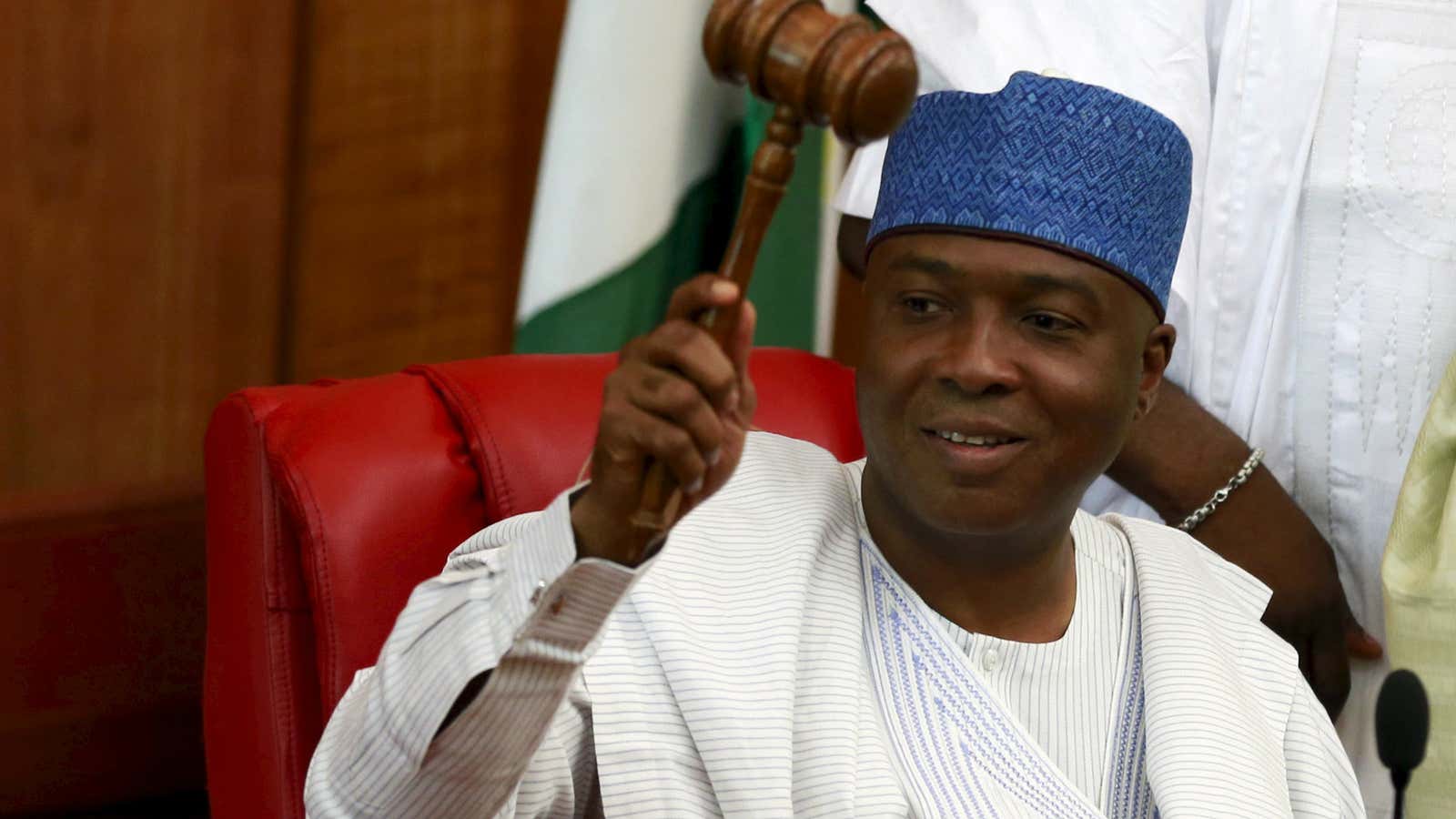Nigeria’s senators and house representatives are not exactly a popular bunch. Widely criticized for their high salaries and luxurious lifestyles, Nigerians have a frosty relationship with their senators. That relationship could get even worse with the introduction of a bill which is seen as aiming to gag free speech on social media.
According to lawmakers, the bill is aimed at prohibiting ‘frivolous petitions’ and preventing the spread of falsehood. The bill, if successfully passed, will compel critics to accompany petitions with court affidavits. If petitions are proven false, the bill says an offender could face jail time and fines as high as $20,000.
The bill also targets online and print media as senators, while debating the bill, announced displeasure with the spread of ‘false stories’.
Even though the lawmakers have sought to position the bill as attempt to dissuade citizens from maliciously discrediting public office holders intentionally, it has come under criticism by many who see it not only as a clampdown on the right to freedom of speech but also a ploy by the lawmakers to silence some of their critics.
Senate president, Bukola Saraki explained that the bill was not about censorship of free speech. “We all support freedom of speech but as a senate we should not be blackmailed. You can’t write false stories just because it is social media.”
But many Nigerians do not believe the senate president. On Twitter, a #NoToSocialMediaBill campaign has spread quickly as users of the platform express their anger with the lawmakers.
The bill specifically mentions social media as it states that ‘abusive’ posts with ‘intent to set the public against any person and group of persons, an institution of government or such other bodies established by law’ could face imprisonment and a $10,000 fine.
In Nigeria, social media platforms, particularly Twitter, have evolved into important tools for political discourse and debates and have sparked increased political participation among Nigerians. The country’s long history with military dictatorships previously saw moderate levels of anti-government campaigns but the rise of social media and the emergence of a young savvy generation has bucked that trend and it appears the political class struggle to accept the new reality where their actions are closely monitored and excesses are scarcely tolerated.
In the last five years, social media sparked movements such as #OccupyNigeria in January 2012 when citizens protested an increase in fuel prices.
Recognizing the rising importance of the platforms, politicians despite initial reticence slowly embraced the use of social media and over time used it to drive political campaigns and narratives.
Prompting more suspicions of ulterior motives, the bill moved surprisingly quickly on the senate floor passing two readings within the first two weeks of its introduction.
Under the new administration, the senate has sought to become more technology savvy as last month lawmakers underwent training from Facebook on how to use the platform properly.
Nigerian lawmakers are not alone on the continent in trying to figure out legislation to help cope with social media critics. In March, Tanzania passed a cyber crimes act which was roundly criticized for limiting online discourse. An amendment introduced before the final vote clarified that charges would only be brought in instances where “intent to defame, threaten, abuse, insult, cause public panic, or encourage criminal offense” has been established. That raised questions about whether satire or comedy on social media could end up with Tanzanians going to jail.
